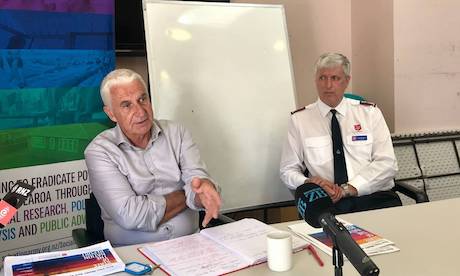The Salvation Army has criticised the ‘wellbeing-focused Government’ for not doing enough to lift the most vulnerable New Zealanders out of poverty.
This year’s report, Are you well? Are we safe? takes a wellbeing approach to social progress as a nation.
The report shows a lack of tangible progress in key areas.
“We cannot blame Government for everything that has or hasn’t happened in terms of social progress,” says the report’s author, social policy analyst Alan Johnson.
He says however that as yet there are few signs that government policies are beginning to address seemingly entrenched aspects of poverty in New Zealand.
Johnson said The Government’s promise of a wellbeing budget in 2019 is overdue but, in taking this approach, it is important that we do not gloss over the large and persistent inequalities which exist across our society.
Key findings
Negatives
- Rising rates of offender recidivism
- Evidence of increasing levels of activity related to social hazards such as alcohol, drugs and gambling
- Persistent gaps between Māori and Non-Māori across a wide range of wellbeing indicators signify entrenched patterns of disadvantage and perhaps systemic racism
- New Zealanders’ debt per household has steadily increased to almost 100 per cent of GDP, which Johnson said poses a risk if interest rates or unemployment start to rise
Positives
- While most predictions were for further increases in the total number of people in prison, the number fell by almost 600
- A reduction in youth offending and teenage pregnancies
- Winter energy payment
- Work on homelessness
- Spending on hardship grants
Source
- Supplied: Issued on the Authority of Commissioner Andrew Westrupp (Territorial Commander) The Salvation Army, New Zealand Fiji, Tonga & Samoa Territory
- stuff.co.nz
- Image: stuff.co.nz
